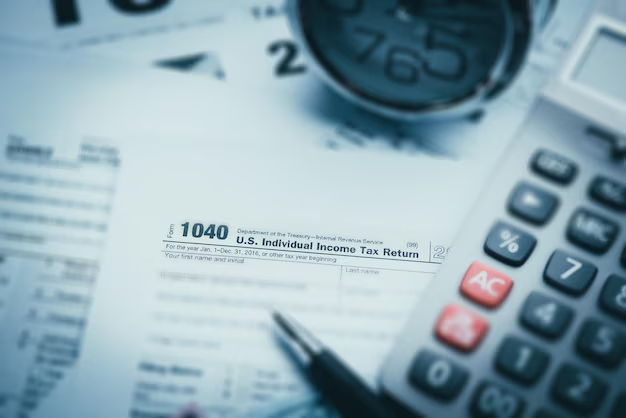Tax Season 2025: When Can You Start Filing?
For many, the start of a new year signals the beginning of tax season—a period that calls for reflection, organization, and sometimes a little bit of stress. With 2025 approaching, everyone from first-time filers to seasoned taxpayers is asking the same question: When can we start filing taxes for 2025? Let's dive into the upcoming tax season to ensure you're well-prepared and informed.
📅 Key Dates for the 2025 Tax Season
Understanding when you can start filing your taxes is crucial for avoiding last-minute stress. Typically, the IRS begins accepting and processing tax returns in January. While the exact date can vary slightly year to year, taxpayers generally can start filing electronically by late January.
- Mid-January: Begin gathering your tax documents as W-2s and 1099s start to arrive.
- End of January: The IRS typically opens electronic filing.
- April 15, 2025: Traditional deadline for filing taxes.
Preparing for Tax Season
Collect Essential Documents
🔍 Preparation is key. Before you can file, you'll need:
- Income Statements: W-2s, 1099s, or other income records.
- Deduction Documents: Receipts for deductible expenses, mortgage interest statements, or student loan interest forms.
- Proof of Identity: Most recent tax return for identity verification.
Understand Changes in Tax Laws
Every year, tax laws can change, affecting everything from deduction limits to tax credits. Staying informed about these changes will help you maximize your return and avoid errors.
- Standard Deduction Changes: The IRS frequently updates these amounts, so check the current year’s deduction rates.
- Tax Credit Updates: Look for adjustments or new credits that may be beneficial.
Steps to File Your Taxes
Choosing Between DIY and Professional Assistance
Do It Yourself (DIY):
- Using tax software can simplify the filing process.
- Ideal for straightforward tax situations.
Professional Assistance:
- Consider hiring a CPA or tax professional if you have complex financial affairs.
- Tax professionals can offer personalized advice and ensure compliance.
Filing Electronically vs. Mailing
E-Filing Benefits:
- Faster processing and quicker refunds.
- Immediate confirmation of receipt.
Paper Filing:
- Necessary for certain situations where electronic filing isn’t possible.
- Generally takes longer to process.
Maximizing Your Tax Return
Deductions and Credits
Knowing the difference between these can greatly impact your refund and potential savings.
- Tax Deductions reduce the amount of income you’re taxed on. Common deductions include mortgage interest and medical expenses.
- Tax Credits directly reduce the amount of tax you owe. Examples include the Earned Income Tax Credit and Child Tax Credit.
Contribute to Retirement Accounts
Contributing to IRAs or 401(k)s before the filing deadline can lower your taxable income, offering future security and present savings.
Review and Double-Check
Errors can delay refunds or cause complications. Ensure all information is accurate, including Social Security numbers, income amounts, and bank details.
Common Tax Filing Mistakes to Avoid
- Missing the Deadline: Aim to file early to avoid penalties.
- Incorrect or Missing Information: Double-check all entries for accuracy.
- Overlooking Deductions/Credits: Ensure you’re taking advantage of all available tax breaks.
Tips for a Smooth Tax Season 📝
- Organize Early: Keep a file of all tax-related documents well before tax season begins.
- Set Reminders: Use calendar alerts to track deadlines.
- Keep Updated: Subscribe to newsletters from trusted tax websites for the latest updates.
Brief Summary of Actions for the 2025 Tax Season
Here's a concise guide to help you prepare:
- 🗓️ Mark Your Calendar: Start gathering documents by mid-January.
- 📝 Organize Documents: Collect all income and deduction records.
- 🧮 Choose Your Method: Decide between online filing and professional help.
- ✅ Double-Check: Review all entries and calculations.
- 📤 File Early: To avoid the last-minute rush and get your refund sooner.
- 🔄 Stay Updated: Follow up on any changes in tax law or IRS announcements.
Combining awareness, preparation, and strategic filing can turn the often-dreaded tax season into a manageable task. Start early, stay informed, and make the most of your 2025 tax return!

Related Topics
- Can I File Taxes As Married Filing Separately
- Can You Go To Jail For Not Filing Taxes
- Can You Go To Prison For Not Filing Taxes
- How Long After Filing Taxes To Get Refund
- How Long Can You Go Without Filing Taxes
- How Many Years Can You Go Without Filing Taxes
- How Much Can You Earn Without Filing Taxes
- How Much Can You Make Without Filing Taxes
- How Much Does Filing Taxes Cost
- How Much H&r Block Charge For Tax Filing
